While first-person shooter is still the most popular genre in video games, real-time strategy games have definitely carved for themselves a substantial player base. These games are the complete opposite of reaction-based shooters - they allow players plenty of time to relax and strategize their moves. This provides hours of gameplay, with great replayability.
In this article, Gurugamer is going to showcase the top 4 best turn-based strategy games on PC in 2022.
Table of Contents
Sid Meier's Civilization VI
Civ 6 is a good game. It had a rocky start, but the devs managed to iron out all the kinks and now it's a fine addition to the series.
Firstly, there is a massive pool of civs to choose from (46 leaders and almost as many civs!). There is more unique stuff for each civ, with a special perk coming from both the civ AND the leader in addition to two (sometimes more) unique "things" (units, improvements, buildings, etc). Makes for a ton of stuff to see and use.
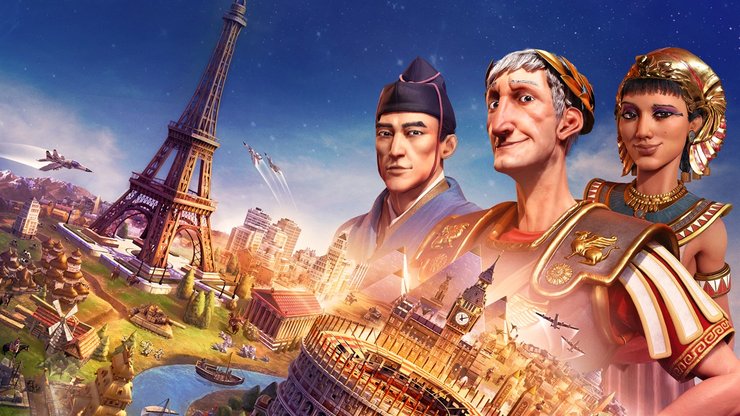
Diplomacy has gotten some really good improvements and refinements. Lots of casus bellis (reasons for war) give you many ways to wage war and take cities without the world treating you like the damn Devil himself for the rest of the game. Several different alliance types allow you to choose the kind of buffs you want. Personality traits for civs that reveal over the course of the game, some of them randomized, so you are not (usually) universally loved or hated. The world congress is pretty interesting and makes the Diplomatic Victory fairly different from other types.
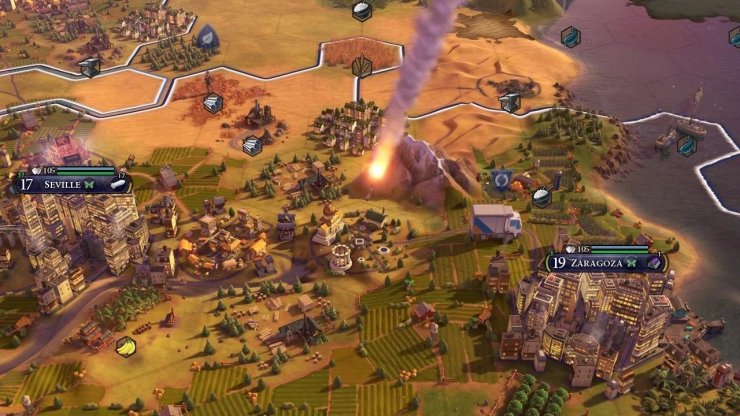
Government system has also been improved. Like with the amount of civs and leaders, the sheer number of options here adds to the variety that is probably Civ 6's greatest strength. A card system with different categories that allows a lot of fine-tuning and frequent switching of buffs to whatever your current short-term and long-term goals are.
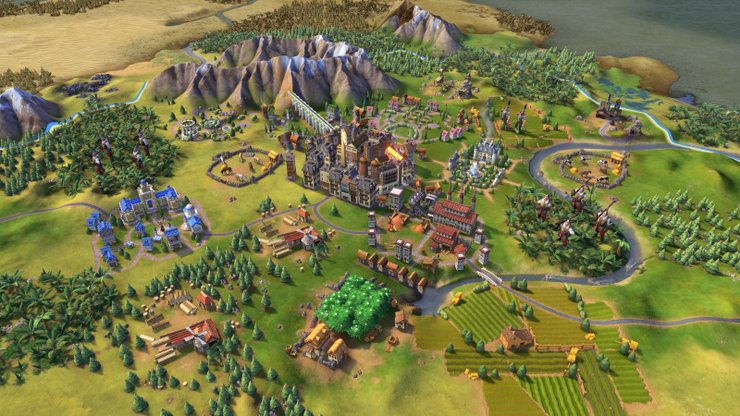
Great people have been turned into unique versions where no two Great Engineers/Scientists/etc are the same. This might be my favorite change from V to VI. It makes for more interesting buffs, especially when you are obtaining many of the same types of great people. Some even give you things separate from their type (a great general giving you a relic for faith and tourism, a great scientist giving you faith buffs)
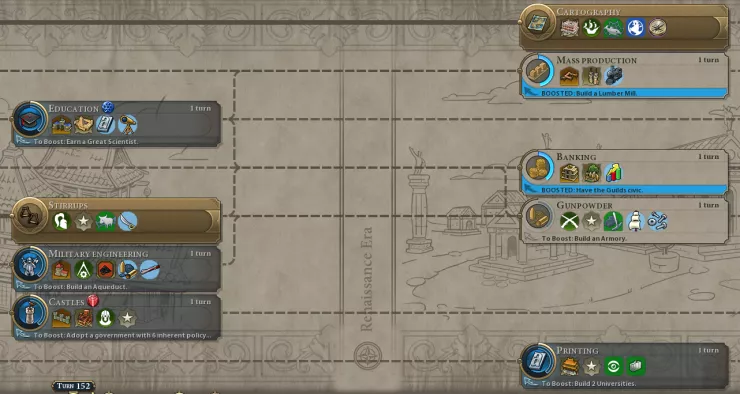
City-states are also now completely unique. There are still general types like scientific and religious, but now each and everyone has a different suzerain bonus. Buffs from anything to various trade route bonuses to unique military units to adding the ability for your religious units to earn you science.
XCOM 2
XCOM 2 is a pretty great turn-based strategy game about killing aliens.

There are two main portions of the game. Firstly, game missions are the more active half where you command a number of soldiers through a map chunk with an objective to complete such as to kill all aliens, destroy a target, or rescue a key personnel. You command troops through the grid-based map and take actions based on the number of action points they possess each turn; these actions include movement, use weapon (fire gun, melee), reload, use items, and go on overwatch (aka set up an ambush if an enemy enters line of sight). Your troops gain experience for taking part in missions and killing enemies.
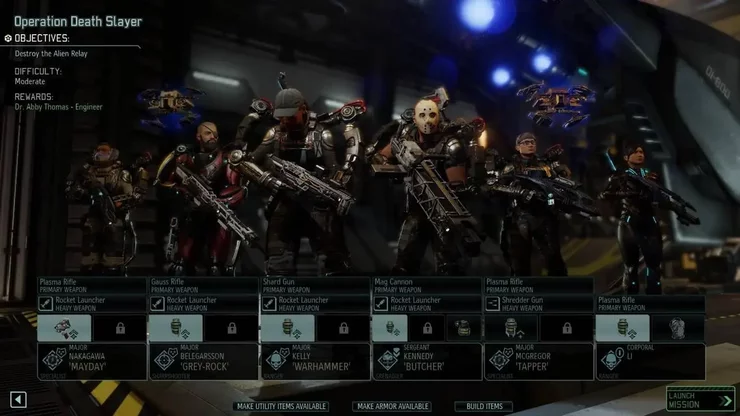
The second half of the game is the base and troop management. Outside of the missions, you are tasked with upgrading your base of operations by commanding the research team to discover new tech that you can employ such as base upgrades and new weapons and engineering new troop upgrades like usable items in the field and improved armor.

There is a "calendar" portion of this section in which your actions need to counter the enemy alien activity; if the alien activity reaches a certain point by a given deadline, your game will automatically end. In the beginning, it is pretty easy to lower the enemy's activity progress but it gets more difficult as the game goes on. Therefore, you need to strategically decide which missions you want to accept; do you want to get more money so you can buy more necessary supplies or do you want to complete a mission to give yourself more time and lower the enemy's activity bar?
Furthermore, XCOM 2 also has a large variety of mods available in the Steam Workshop; would highly recommend players to check those out on subsequent playthroughs.
Warhammer 40,000: Battlesector
This is a really solid and enjoyable game where the combat feels good and the 40k vibe feels near enough just right.

Its primary feature is a 20-mission narrative campaign that ties together a set of battles where you choose which forces to bring from those gradually unlocked. Most people are going to get 25+ hours out of the campaign although someone desperate to speed run it could certainly halve that. New units, weapon loadouts, and buffs for units are unlocked mission to mission so you can focus on playing just with some units or develop a broader build for your force for each mission. There are ample difficulty settings to shift things from a roflstomp across the maps to attritional battles depending on your own preference. It's 20 narrative battles linked by the story and a handful of HQ heroes rather than an XCom-like ongoing campaign of individual unit progression.
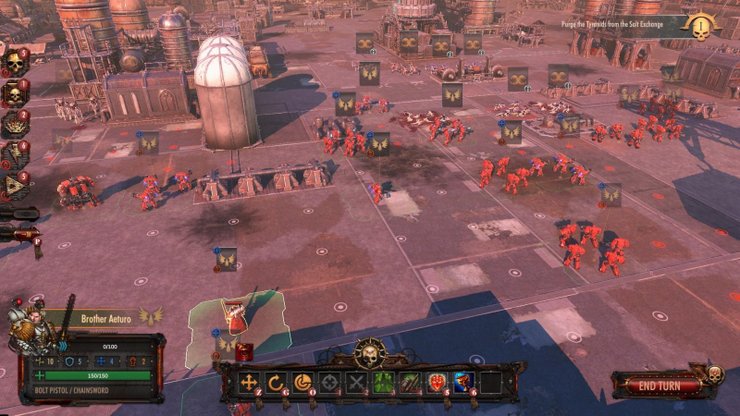
The mechanics and unit types tend to encourage you to play aggressively but if you want to hunker down and corner camp with overwatch then that too is occasionally a viable option. The combat reminds me a fair bit of how Byzantine Games handle historical warfare - you don't need to know the detail at lower difficulty levels to have a good time but it's there to unpick on higher difficulty levels and know when you'll get a reaction shot and when you won't nearly always have a payoff.

The game allows you to move and shoot in any order you please, it makes for a very fluid system, and interacts with a cover system which is line of sight - you pop in and out from behind of cover or take the penalty for trying to fire through it. By mid-game my usual build for a force was a fast-moving jump jet crew of inceptors and seraphim backed up by a heavy armor force of dreadnaughts, predators, and various plasma and flamer-wielding Primaris. You really do make of it what you choose to make of it as you make up your army to the points limit and the 20-unit hard cap.
Total War: ROME II
Rome 2 had a rough start but has evolved over time to become my favorite Total War. One of my favorite features is the sheer variety of factions to choose from. The main game and Grand Campaign feature 14 playable factions, covering all of the major and some of the minor players in this era. They're spread across four large Cultural Groups (Roman, Hellenic, Barbarian and Eastern, each of which have different fighting styles, buildings etc) and 9 Cultures, each offering different traits and bonuses. And while factions within the same culture may be similar, each still has some unique units and specific challenges that I feel adds to the replayability.
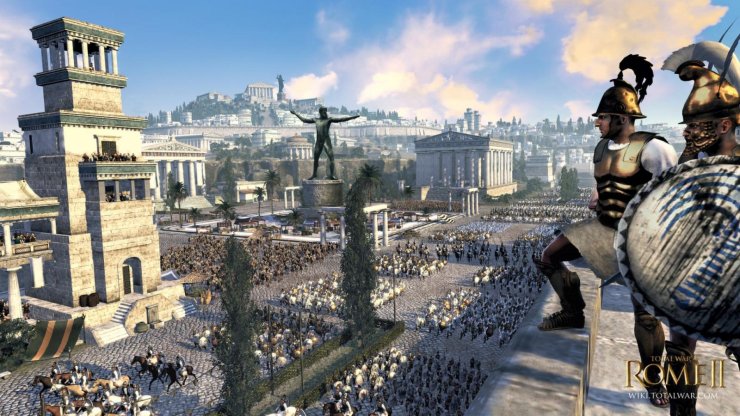
Mechanically if you're familiar with Total War games you'll recognize the combination of a Turn-Based Campaign with Real-Time Battles featuring hundreds or even thousands of soldiers. Rome 2 introduced a number of new ideas to the series which have then evolved in later games but still hold up well in my view.
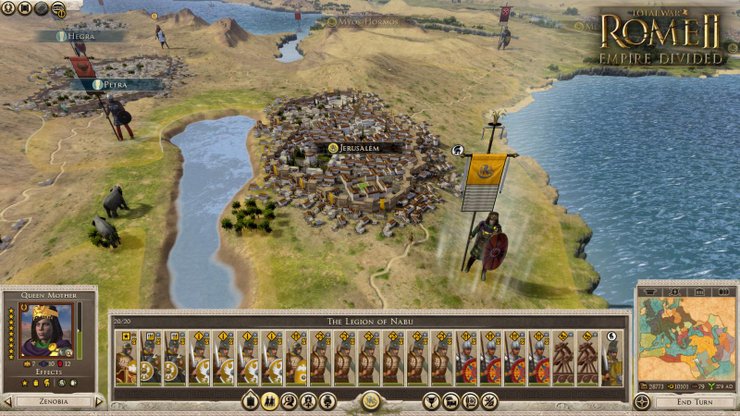
Armies and navies now have their own names and traditions (skills,) and are now tied to a particular General or Admiral (so you recruit from the army, not the settlements, though what you can recruit is based on the buildings in that province.) There's also now a cap on the number of armies and navies each faction can field, though this can be increased through Imperium. This means you generally don't have lots of little armies swarming all over the place. And while this does mean there's a small loss of strategic flexibility, I find it also means you have to put more strategic thought into where you place your limited armies.
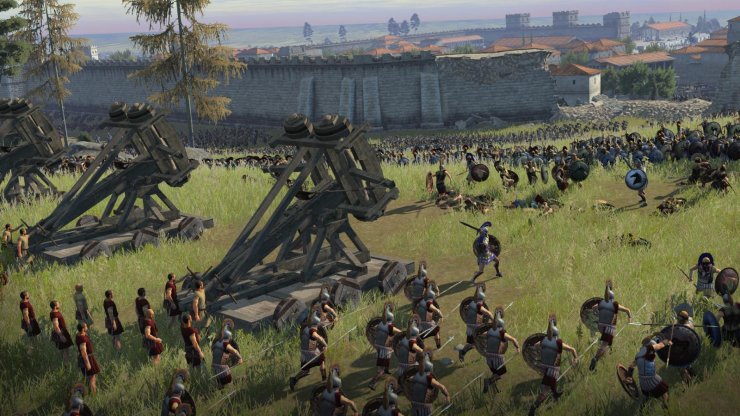
The Imperium system introduces advantages, but also penalties for conquering territory and growing your empire. As it gets bigger your Imperium level increases, allowing you to field more armies and agents, as well as enact more edicts (province-wide bonuses,) but also introduces new governance and logistical issues (represented by increases in corruption, disloyalty and unit upkeep costs.)
>>> Read more: Top 4 Real-Time Strategy Games To Play On PC In 2022
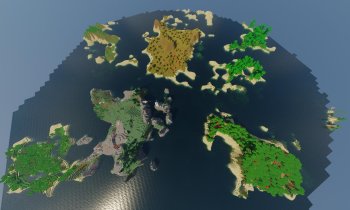









Comments